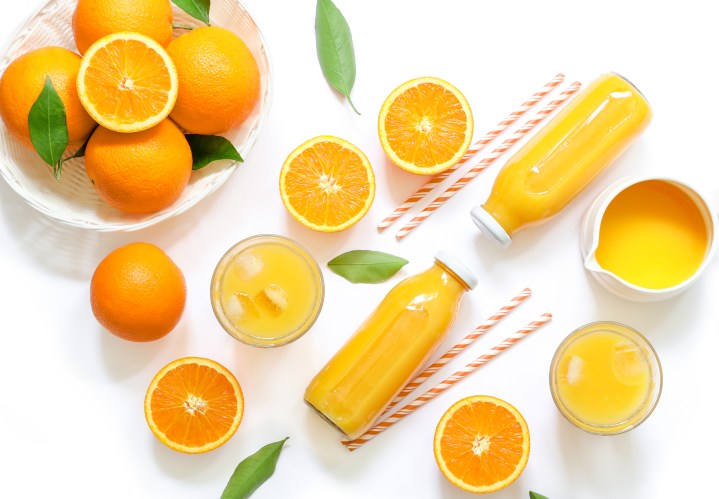Eating healthy is sometimes easier said than done. While we may have the best intentions to only choose the better-for-you choices on the grocery store shelves, there are some options that are considered to be unhealthy food.
From organic to non-GMO to the ever-popular superfood, there are terms that are tossed around that can make certain foods sound extremely good for you. As a registered dietitian, I have seen my fair share of foods that sound healthy, but in reality, are quite the opposite.
Of course, choosing foods like fruit, vegetables, whole-grains, and lean protein are excellent choices when you are trying to support your overall health. But while you are including these healthy foods, you should also be mindful of which foods you should try and limit, no matter how “healthy” they sound on paper.
Here are five foods, that as a dietitian, I recommend limiting as much as possible when following a healthy lifestyle.
RELATED: The Healthiest Foods For The Most Popular Eating Plans
5 “Healthy Foods” RDs Want Us to Limit
#1 Fat-Free Salad Dressing

Let’s face it — fat makes food taste good. When fat is removed from food like salad dressing, peanut butter, and other condiments, the missing flavor needs to be replaced with another ingredient. Unfortunately, the lack of fat flavor is often times compensated by adding additional sugar to the product. So, while fat-free salad dressing will not contain any fat, it will oftentimes contain more carbohydrates (and, in many cases, sugar) to make it still taste good.
And since fat helps the body absorb certain nutrients found in traditional salads, including some fat from the dressing will actually serve your health in a positive way. Whenever possible, stick with the full-fat versions of oil-based salad dressings and nut butters.
#2 Cold Pressed Juice Blends

At $10 a pop, cold-pressed juices are a trendy and pricey trend that isn’t going away any time soon. While these juices are a convenient way to sneak some nutrients into your busy day, they won’t give you a lot of staying power.
When juice is made, the fiber is removed from the fruit or vegetable. Fiber helps people stay fuller longer, which can help people eat less in the long run. Plus, many fruits hold most of their nutrients in their skin. So, when you are peeling your pear or apple, you are removing the nutrition powerhouse that your body can truly benefit from.
It is preferred to stick to the whole fruit or veggie instead of the juice. The whole-food option will be more satisfying, more nutritious, and in many cases, more economical.
#3 Organic Candy

Organic candy is still candy (same goes for organic sugar, organic soda, organic cookies….you catch my drift). Yes, the organic candy may not contain as many pesticide residues or toxins as the conventional alternative, but it is still essentially a sugar bomb that will raise your blood sugars if you overindulge.
Organic cookies, cakes, and other treats are not any more nutritious than non-organic choices. Regardless of whether you are choosing organic treats or not, enjoying them in moderation is key.
#4 Highly Processed Meat Alternatives

When a person avoids animal products, they need to be aware of the downside of choosing some alternatives as a protein source. While natural and unprocessed plant-based protein sources like edamame, lentils, and nuts are perfectly healthy, many pre-made processed options can wreak havoc on your health goals if you are not careful.
Keep in mind that not all meat alternatives are bad, you’ll just want to check the label and look out for the ones that are full of salt and artificial fillers.
#5 Granola

When you sprinkle crunchy and sweet granola on your yogurt or smoothie bowl, you are doing something super-healthy for your body, right? Not quite. Many granolas are made with sugary ingredients like maple syrup or honey — making them very high in sugar.
If you need a crunch, try some crushed nuts instead for a protein and fiber-rich nosh, or try this FitOn PRO Low Sugar Granola recipe.
Bottom Line
Following a healthy lifestyle can become challenging on occasion. Being armed with some tricky terms that sound healthy but are actually not “dietitian-approved” will help you find success on your wellness journey in a major way.


